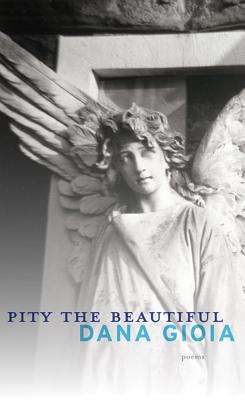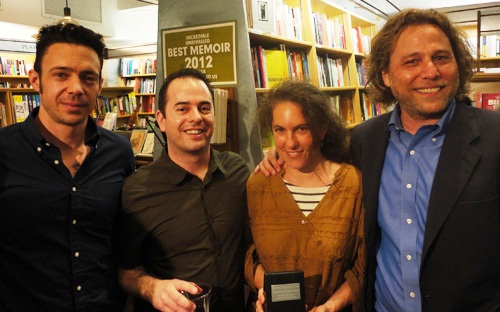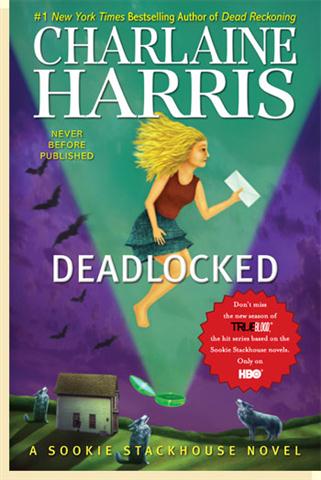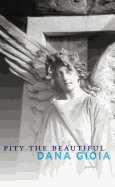 "Most American artists, intellectuals and academics have lost their ability to converse with the rest of society," Dana Gioia said in a 2007 commencement address at Stanford. "We have become wonderfully expert in talking to one another, but we have become almost invisible and inaudible in the general culture." Gioia, however, is adept at writing poetry that is accessible to general readers, in the colloquial tradition of Robert Frost, Richard Wilbur and Billy Collins. Pity the Beautiful, coming 10 years after the Poet's Prize–winning collection The Gods of Winter, speaks in a relevant voice of today within the formal verse structures of the past.
"Most American artists, intellectuals and academics have lost their ability to converse with the rest of society," Dana Gioia said in a 2007 commencement address at Stanford. "We have become wonderfully expert in talking to one another, but we have become almost invisible and inaudible in the general culture." Gioia, however, is adept at writing poetry that is accessible to general readers, in the colloquial tradition of Robert Frost, Richard Wilbur and Billy Collins. Pity the Beautiful, coming 10 years after the Poet's Prize–winning collection The Gods of Winter, speaks in a relevant voice of today within the formal verse structures of the past.
Gioia's poems tell of simple emotions and memories in the context of metaphorical observations. They are not ponderous reflections, but rather notes of slightly amused perplexity. The opening stanza of "The Road" is a good example:
He sometimes felt that he had missed his life
By being far too busy looking for it.
Searching in the distance, he often turned to find
That he had passed some milestone unaware,
And someone else was walking next to him,
First friends, then lovers, now children and a wife.
They were good company--generous, kind,
But equally bewildered to be there.
Gioia is best when he touches lightly on the heavy blows that life often strikes. "Special Treatments Ward" tells of a children's hospital wing
...where the children come to die,
hidden on the hospital's highest floor....
No one chooses to be here. We play the parts
that we are given--horrible as they are.
We try to play them well, whatever that means.
Arranged in five sections, the poems in Pity the Beautiful cover a broad sweep of subjects and forms. They include a few translations, four songs from a libretto and a longer poem of a love affair thwarted by ghosts.
This last, "The Haunted," moves easily from that first thrill of the forbidden:
I was in love with Mara then, if love
is the right word for that particular
delusion. We were young. We thought we could
create a life made only of peak moments.
We laughed. We drank. We argued and made love.
to the sober reality brought on by the appearance of a ghost:
I could have learned the secrets of the dead
if there are any secrets, which I doubt.
To his credit, Gioia makes no attempt to plumb the depths of our modern angst or push the boundaries of contemporary verse. Instead, he lets his far-reaching interests pull us into poems of simple grace, gentle irony and comfortable form. --Bruce Jacobs
Shelf Talker: The fourth collection of poems by the former NEA chairman is rich in subtle irony and well-crafted storytelling.






SHELFAWARENESS.1222.S1.BESTADSWEBINAR.gif)



SHELFAWARENESS.1222.T1.BESTADSWEBINAR.gif)
 Pottermore's online bookstore sold £3 million
Pottermore's online bookstore sold £3 million Last week Amazon unveiled plans to build a one-million-square-foot distribution facility in Patterson, Calif., as well as a 950,000-square-foot fulfillment center in San Bernardino.
Last week Amazon unveiled plans to build a one-million-square-foot distribution facility in Patterson, Calif., as well as a 950,000-square-foot fulfillment center in San Bernardino. 
 Frank Pearl, who founded Perseus Books Group in 1997 and was chairman of the company, died last Friday. He was 68. He was also the head of Perseus LLC, a private equity firm that has investments in a range of companies.
Frank Pearl, who founded Perseus Books Group in 1997 and was chairman of the company, died last Friday. He was 68. He was also the head of Perseus LLC, a private equity firm that has investments in a range of companies.
 How about some bacon brownies, chocolate coconut bacon or white chocolate bacon pretzel rods?
How about some bacon brownies, chocolate coconut bacon or white chocolate bacon pretzel rods?  New York Social Diary's Delia von Neuschatz
New York Social Diary's Delia von Neuschatz
 Since her television debut on HBO's True Blood, Sookie Stackhouse has become a household name, along with her creator, author
Since her television debut on HBO's True Blood, Sookie Stackhouse has become a household name, along with her creator, author  Book you've bought for the cover:
Book you've bought for the cover: "Most American artists, intellectuals and academics have lost their ability to converse with the rest of society," Dana Gioia said in a 2007 commencement address at Stanford. "We have become wonderfully expert in talking to one another, but we have become almost invisible and inaudible in the general culture." Gioia, however, is adept at writing poetry that is accessible to general readers, in the colloquial tradition of Robert Frost, Richard Wilbur and Billy Collins. Pity the Beautiful, coming 10 years after the Poet's Prize–winning collection The Gods of Winter, speaks in a relevant voice of today within the formal verse structures of the past.
"Most American artists, intellectuals and academics have lost their ability to converse with the rest of society," Dana Gioia said in a 2007 commencement address at Stanford. "We have become wonderfully expert in talking to one another, but we have become almost invisible and inaudible in the general culture." Gioia, however, is adept at writing poetry that is accessible to general readers, in the colloquial tradition of Robert Frost, Richard Wilbur and Billy Collins. Pity the Beautiful, coming 10 years after the Poet's Prize–winning collection The Gods of Winter, speaks in a relevant voice of today within the formal verse structures of the past.